武汉市2018届高中毕业生四月调研测试英语试题
4月20日日考完的武汉市2018届高中毕业生四月调研测试英语试卷已经出来了,这次同学们考的如何,英语试题中有哪些题目做错了,为什么会做错呢?小编整理了武汉市2018届高中毕业生四月调研测试英语试题电子版,同学们可以利用周末好好的在做一下,看看为什么在考试的时候做错了呢。
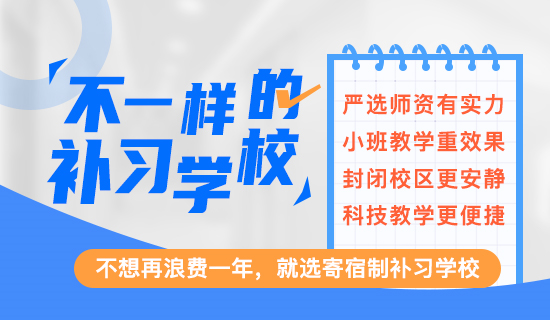
武汉市2018届高中毕业生四月调研测试英语试题
分享:武汉市2018届高中毕业生四月调研测试各科试题及答案汇总
武汉市教育科学研究院命制 2018.4.20
本试题卷共12页,72题。全卷150分。考试用时120分钟。
★祝考试顺利★
注意事项:
1.答卷前,考生务必将自己的学校、考号、班级、姓名等填写在答题卡上。
2.选择题的作答:每小题选出答案后,用2B铅笔把答题卡上对应题目选项的答案信息点涂黑,如需改动,用橡皮擦干净后,再选涂其他答案标号,答在试题卷、草稿纸上无效。
3.填空题和解答题的作答:用0.5毫米黑色签字笔直接答在答题卡上对应的答题区域内,答在试题卷、草稿 纸上无效。
4.考生需要保持答题卡的整洁。考试结束后,将试题卷和答题卡一并交回。
第一部分听力(共两节,30分)
做题时,先将答案标在试卷上。录音内容结束后,你将有两分钟的时间将试卷上的 答案转涂到答题卡上。
第一节(共5小题;每小题1.5分,7.5分)
听下面5段对话。每段对话后有一个小题,从题中所给的A、B、C三个选项中选出较 佳选项,并标在试卷的相应位置。听完每段对话后,你都有10秒钟的时间来回答有关小 题和阅读下一小题。每段对话仅读一遍。
例:How much is the shirt?
A. £ 19.15. B. £ 9.18. C. £ 9.15. 答案是C。
1. What day is it today?
A. Wednesday. B. Thursday. C. Saturday.
2. What are the speakers talking about?
A. Preparing a party. B. Planning the weekend. C. Helping the teacher.
3.What does the man advise the woman to do?
A. Buy a computer. B. Complete a paper. C. Clean the kitchen.
4.What’s the probable relationship between the two speakers?
A. Student and teacher. B. Classmates. C. Schoolmates.
5.Which part did the man do badly in?
A. Reading. B. Listening. C. Speaking.
第二节(共15小题;每小题1.5分,22.5分)
听下面5段对话或独白。每段对话或独白后有几个小题,从题中所给的A、B、C 三个选项中选出较佳选项。听每段对话或独白前,你将有时间阅读各个小题,每小题5 秒钟;听完后,各小题将给出5秒钟的作答时间。每段对话或独白读两遍。
听第6段材料,回答第6、7题。
6.Where are the two speakers?
A. In a hotel. B. In a bank. C. In a restaurant.
7.What does the woman offer to help the man?
A. Ask a porter. B. Fill in the form. C. Lend him a credit card.
听第7段材料,回答第8、9题。
8.What will the woman do next week?
A. Make a plan. B. Fly to Chicago. C. Receive a guest.
9. When will the man meet the woman?
A. At 11 next Friday. B. At 11 next Tuesday. C. At 2:15 next Friday.
听第8段材料,回答第10至12题。
10. Who is the woman?
A. A store keeper. B. A librarian. C. A book writer.
11. How can the man find the book he wants?
A. By the author’s name.
B. By the time of the book.
C. By the subject of the book.
12.What must the man do next when he finds the book?
A. Buy it right away. B. Borrow it again. C. Fill out a form.
听第9段材料,回答第13至16题。
13. Why was the man called over the public address system?
A. His baggage was found.
B. Someone left a message for him.
C. He should board the plane immediately.
14. What was wrong with the man’s luggage?
A. It was broken on one side.
B. It was taken by someone else.
C. It was placed on another plane.
15. Where is the man heading for?
A. London. B. Paris. C. New York
16. When will the man arrive in Paris?
A. At 3:45. B. At 5:10. C.At 4:30
听第10段材料,回答第17至20题。
17. What is the speaker doing?
A. Giving a speech. B. Teaching students. C. promoting products.
18. What does the speaker think of plastic bags?
A. They’re green. B. They’re expensive. C. They’re convenient.
19. What does the speaker call on customers to do?
A. Buy plastic bags. B. Take their own bags. C. Choose cheap products.
20.What can people do to “act green” in the community?
A. Plant trees. B. Recycle paper. C. Wash with lemon.
#p#副标题#e#
第二部分阅读理解(共两节,40分)
第一节(共15小题;每小题2分,30分)
阅读下列短文,从每题所给的A、B、C和D四个选项中,选出较佳选项。
A
100-Word -Story Competition 2018
Our annual short story competition is back for its eighth year. As ever,we look forward to reading yours!
The Rules
Please make sure that stories are new,not previously published and exactly 100 words long (not including the title). We may use entries in all print and electronic media.
Entry is open only to people living in the UK. It is not open to employees of Reader’s Digest and all others associated with this competition,their immediate families and relatives living in an employee’s household.
Terms and Conditions
There are three categories — one for adults and two for schools : one for children aged 12-18 and one for children under 12.
In the adult category,the winner will receive £ 1,000 and two runners -up will each receive £250. In the 12-18s and under-12s categories,the winners will each receive a Fire HD 8 Tablet and a selection of STAEDTLER products worth £50, plus two STAEDTLER classpacks of pencils for their school. The two runners - up in both categories will each receive a Kindle E-Reader.
Please submit your stories by 5pm on February 19.
The editorial team will pick a shortlist of entries,which this year will be published by our partner nicereading. corn. Winners of the categories will have an opportunity to write a longer version of their stories for inclusion in the book.
The three best stories in each category will be posted online at readersdigest.co.uk on February 27. You can vote for your favourite, and the one with the most votes wins the top prize. Voting will close at 5pm on March 19 and the winning entry will be published in our June issue (六月刊)
21.Who is forbidden to take part in the story competition?
A. A British man of 20. B.A staff of Reader’s Digest.
C. A net friend of the organizer. D.An employee of the government.
22.Which of the following will be awarded to the youth winners?
A. A Fire HD 8 Tablet. B. A Kindle E-Reader.
C. £50. D. £250
23.When are the stories due?
A. By 5pm on February 19. B. On February 27.
C. At 5pm on March 19. D In June..
24.Where will the winning entry come out?
A. On TV. B In a magazine.
B. On a website. D. In a book.
#p#副标题#e#
B
When I graduated from the University of Iowa last year,I did something my friends did not understand. I left Iowa,where I had friends and stability,to live on a small houseboat near San Francisco. At school,I had found a job driving a school bus so people asked, “Why on earth are you leaving?”
Well,at graduation I was presented with two things — a degree in psychology and a question. It was the same one that many in my generation got: “What do I do now?” It was as difficult as it was common. That’s because many people at my age were raised with the same words,repeated over and over by parents, teachers and TV,that you “can be whatever you want to be.” As a young boy,every time when I was puzzled about my future,they would say that they would be happy if I was happy. However,what I needed was concrete advice but not a vague idea,for example,“be a doctor,or be a bus driver.”
My experience was by no means universal. Many Americans are taught by their parents that the only purpose in life is to attain money and power. As a goal, this seems much easier and clearer than finding “happiness” or “gentleness”. The result of this upbringing is that many of my classmates did not specialize in any particular skill,rather assuming that something would magically happen to overcome their problems. They often get a real shock when they enter the“real world”and find that their options are very limited. Many of my friends have taken jobs as waiters or cooks after graduating,or have moved back in with their parents.
My life on the boat is hard at times,especially during storms. But this is my small attempt to be happy on my own. I’m not buying into my nation’s idea of limitless possibilities because I feel that stops the growth of many of today’s youth.
25.Why were the friends confused about the writer’s leaving?
A. He was tired of driving. B. He suddenly quit school.
C. He would lose his friends. D. He would lead a changing life.
26.What does the author think of the guidance he got from American society?
A. It’s specific. B. It’s wrong. C. It’s general. D. It’s correct.
27. What directly caused a lot of Americans to have jobs lower than their expectations?
A. Their achievable goals. B. The practical guidance.
C. Being shocked by the real world. D. Lacking professional competence.
28.Which of the following can be the best title for the text?
A.Stay where you are.
B.Be whatever you want to be.
C.Blind faith in an industrial society.
D.Mistaken belief in limitless possibilities.
#p#副标题#e#
C
When a mathematics student was examined in the hospital,Dr. John Lorber discovered that he had almost no brain at all. Normally,the condition is quite severe in the first months of childhood. Even when someone survives he or she is usually seriously disabled. Somehow, though, the student had lived a perfectly normal life and went on to gain a degree in mathematics. This case is by no means as rare as it seems.
Professor Lorber has identified (确认)several hundred people who have very small brains but who appear to be normal intelligent people. Some of them he describes as having “no detectable brain”,yet they have scored up to 120 on IQ tests.
No one knows how people with “no detectable brain” are able to function at all,let alone
graduate in mathematics. One suggestion is the old idea that we only use a small percentage of our brains anyway — perhaps as little as 10 per cent. But more recent research shows this idea is a misunderstanding dating from research in the 1930s in which the functions of large areas of the brain could not be determined and were named “silent”,while in fact they are linked with important functions like speech and abstract thinking.
The other interesting thing about Lorber’s findings is that they remind us of the secret of memory. At first it was thought that there is a part in the brain for memory, like the memory chips in a PC. But further research of the brain has turned up the surprising fact that memory does not depend on any particular area in the brain. As one scientist put it,“Memory is everywhere in the brain and nowhere. ”
But if the brain is not a place for classifying and storing experiences and analyzing them to enable us to live our lives,then what on earth is the brain for? And where is the seat of human intelligence? Where is the mind?
29.What will usually happen to a very young baby without brain?
A. It will die. B. It will survive.
C. It will be intelligent. D. It will become disabled.
30.What is the new finding of the functions of brain?
A. Much of the brain is useful. B. The brain is in fact of no use.
C. The brain determines one’s IQ. D. Only a small part of the brain is used.
31.What do we know about the existence of memory?
A. We use all of our brain. B. We have memory chips.
C. We are fully aware of it. D. We are still confused about it.
#p#副标题#e#
D
Companies that have invested (投资)heavily in big data want to know how to make smart investments that will distinguish them from the competition and enable the best possible return before making the decision to go all in. In the past,not all enterprises’ big data plans went as planned. These failures are not usually published, but the big data failure rate is unusually high.
According to Gartner,only 15% of businesses make it past the experimental stage of these
projects. Our fear,as leaders of technology companies,is that with so much attention surrounding AI,the pressure is on to apply the technology without first setting clear business goals and understanding the differences between AI and ML (machine learning) and how they should be applied,thus risking falling behind the many decision makers who are adopting the technology.
It’s easy to get caught up in the great expectations of artificial intelligence as it’s promoted,including breakthroughs like deep learning,but those looking to make an outsized influence should instead focus on good old-fashioned machine learning — or “cheap learning”.
The distinction is simple: Cheap learning is about using basic machine learning techniques on straightforward data sets in different parts of a company to produce a large number of small, gradual improvements. Deep learning,on the other hand,is a specific part of machine learning. Deep learning is a collection of advanced machine learning approaches that make business decisions based on highly complex data sets possible.
For tasks of analyzing raw data,such as images and voice recordings,deep learning is best. But when it comes to working on simplified,structured types of data,we’ve found cheap machine learning will do the trick. When you consider that the majority of data flowing through enterprises falls into this second category,it’s clear which tool makes the most sense.
32. What do we know about investment in big data from the first paragraph?
A. Is secret. B. Is safe. C. Is risky. D. Is fruitful.
33. Which of the following adds to the pressure on the leading technology companies?
A. Understanding AI and ML. B. Wasting too much time on AI.
C. Falling behind other companies. D. Acting with unclear business goals.
34. What should companies with ambitions concentrate on?
A. A strong influence. B. Big breakthroughs.
C. Cheap learning. D. Deep learning.
35. What does the underlined phrase “do the trick” in the last paragraph refer to?
A. Invest. B. Cheat. C. Function. D. Simplify.
#p#副标题#e#
第二节(共5小题;每小题2分,10分)
根据短文内容,从短文后的选项中选出能填入空白处的较佳选项。选项中有两项为多余选项。
These days when someone says a computer has a bug (臭虫)in it, usually they mean that there’s a problem with one of its programs. Maybe your computer crashed when you were in the middle of a game. 36 .
But back in the early days of computers,a woman named Grace Hopper was part of the team that discovered the very first computer bug.
37 She had been invited to help program a new computer, the job of which was to quickly deal with the math problems ships used to find their way. 38 Then it translated the patterns of holes into the math problems it was supposed to solve.
One afternoon in 1947 Hopper and her team were running a program. But the computer wasn’t giving them the right results. 39 They finally ended up taking the computer apart, looking for problems. What did they find? It was a dead moth (飞蛾)! The moth was blocking some of the holes on the paper — no wonder the computer didn’t know what to do.
Hopper knew that the term “bug” had been used before when there were problems with machines. But this was the first time a computer had ever had a bug. 40 Some people think Hopper was the first person to use the word “debug” to mean “get rid of the problems in a computer.”
A. What could be wrong?
B. Hopper was a mathematician.
C. Who had operated the computer?
D. Hopper was a hardworking scientist.
E. She thought it was funny that it was a real one.
F. Or you got an error message when you tried to go to a website.
G. The computer worked by reading instructions from a long piece of paper with holes in it.
#p#副标题#e#
第三部分语言知识运用(共两节,45分)
第一节完形填空(共20小题;每小题1.5分,30分)
阅读下面短文,从短文后各题所给的A、B、C和D四个选项中,选出可以填入空 白处的较佳选项。
Justin knew there was only one way out of his neighborhood — basketball. So he 41 hard,running with the ball like the 42 dogs were chasing (追逐)him. He could defeat any of the guys at the 43 , and he saw his way out and he ran for it.
One day when Justin was playing basketball, he 44 his right knee badly. The doctor said he might never play 45 . Justin was extremely sad. Every day Justin just 46 in bed, watching TV and eating potato chips. When he 47 like a balloon, his sister came home from the university on holiday, bringing exciting 48 of a faraway land called college.
Justin was 49 by the dorm room stories and campus (校园) 50 that she told, but he could 51 believe any of it. It was as if she were telling him about some 52 land high above the clouds.
Justin was a pretty 53 guy, but his sister had a way of 54 him to do things that nobody else could. So while she was home on 55 ,they studied together, and they talked, and they worked,and Justin felt 56 than he ever had before.
After spending those 57 with his sister, Justin realized that he didn’t want to feel bad for himself any more, and he didn’t want to quit. Basketball 58 be his thing, but now there was only 59 . Using the study skills Justin had acquired from his sister, he scored 60 in every exam. The university that he applied to accepted him.
41. A. hit B. studied C. practiced D. breathed
42. A. pet B. guide C. cute D. wild
43. A. top B. court C. back D. beginning
44. A. injured B. hugged C. bent D. raised
45. A. alone B. again C. around D. well
46. A. played B. lay C. jumped D. trained
47. A. stayed up B. looked up C. grew up D. blew up
48. A. tales B. challenges C. discoveries D. possibilities
49. A. amazed B shaken C annoyed D scared
50. A. stress B canteens C . craziness D networks
51. A. firmly B honestly C . really D hardly
52. A . foreign B rich C fantasy D public
53 A lazy B stubborn C regular D wise
54. A . getting B promising C . permitting D warning
55 A duty B trial C break D strike
56 A weaker B healthier C worse D . better
57 A years B hours C decades D weeks
58. A . used to B . ought to C . had to D. got to
59 A vacation B victory C school D. strength
60 A much B high C. little D . low
#p#副标题#e#
第二节(共10小题;每小题1.5分,15分)
阅读下面短文,在空白处填入1个适当的单词或括号内单词的正确形式。
The energy that so many outsiders feel when they are in China comes not just from the hurrying footsteps that can ____61____ (see) everywhere. It also comes from a sense that it is used for something bigger.
A few years ago, I interviewed Zhang Xin, a young man from a ____62____ ( deep ) poor agricultural province in central China. His parents were wheat ____63____ (farmer) and lived in a tiny one -room house next to the fields. He ____64____ (graduate) from Tsinghua University and gotten a job as a software engineer at Huawei. His success, Zhang told me one day, had changed his family forever, ____65____ (keep) his families away from hard labor forever. Not his parents. Not his children. That kind of life was over.
Multiply that young man’s story by millions, ____66____you will get a sense that this once very backward society has become ____67____ forward -looking country. A smart American who lived in China for years put it this way: “China is making a great effort to become ____68____ it has not yet become. It is upwardly mobile, proudly so. ”
Proudly so, because as Zhang understood, hard work today means a much ____69____ (good) life decades from now for ____70____ (he) later generations and the country.
第四部分写作(共两节,35分)
第一节短文改错(共10小题;每小题1分,10分)
假定英语课上老师要求同桌之间交换修改作文,请你修改你同桌写的以下作文。文 中共有10处语言错误,每句中较多有两处。每处错误仅涉及一个单词的增加、删除或 修改。
增加:在缺词处加一个漏字符号(∧ ),并在其下面写出该加的词。
删除:把多余的词用斜线(\ )划掉。
修改:在错的词下画一横线,并在该词下面写出修改后的词。
注意:
1.每处错误及其修改均仅限一词;
2.只允许修改10处,多者(从第11处起)不计分。
I once had a bad experience. One day several years ago, I went shop with my friends. As I entered a small shoe store, but I saw two women selecting shoes. Suddenly they raise their voice and began to talk loudly about how beautifully the shoes were and how low the price was. Just then an old couple walked onto the shop. The two women urged her to buy a pair. When the couple left a store with the shoes, I noticed the shop owner give the two women some cashes. He also promised offer them more unless more people bought his shoes.
第二节书面表达(25分)
假定你是李华,正在加拿大参加短期访问交流活动。你偶然在一本近期的杂志里看到一篇介绍中国端午节的文章,但文章里没有注明日期是中国农历,且文中所配图片是 赛艇而不是龙舟。请你给编辑部写一封信,指出其中的错误并要求更正。
内容包括:
1. 指出错误,给出正确信息;
2. 要求更正;
3. 赞赏对方介绍中国文化。
注意:
1. 词数100左右;
2. 可以适当增加细节,以使行文连贯。
3. 参考词汇:中国农历一the Chinese Lunar Calendar
赛艇—rowing boat 龙舟—dragon boat
- 热门课程
- 热门资讯
- 热门资料
- 热门福利
-
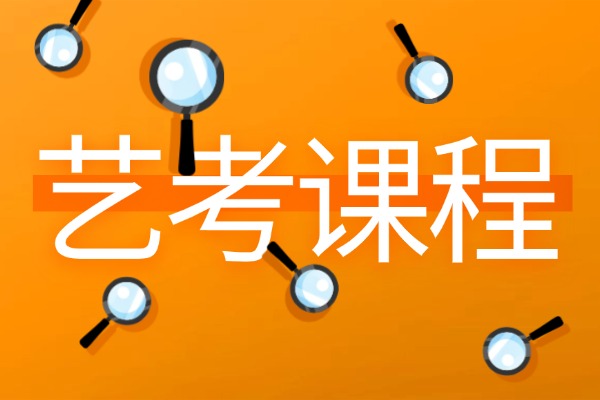 艺考家长必看!80%人都不知道的文化课真相!近几年,艺考逐渐升温,越来越多的人认为艺考是通往大学的一条捷径,纷纷为孩子选择了这条道路,导致艺考竞争越来越激烈。为什么越来越多文化课成绩很不错的孩子,选择参加艺考?难道艺考真的这么简单吗?
艺考家长必看!80%人都不知道的文化课真相!近几年,艺考逐渐升温,越来越多的人认为艺考是通往大学的一条捷径,纷纷为孩子选择了这条道路,导致艺考竞争越来越激烈。为什么越来越多文化课成绩很不错的孩子,选择参加艺考?难道艺考真的这么简单吗? -
 西安哪些补习学校适合差生?西安伊顿咋样?西安的补习学校这两年数量也是非常多了,很多学生的家长都不知道该怎么去挑选合适孩子的补习机构了,有的机构擅长做拔高,有的擅长补弱,要找对应的机构才能帮娃真正实现对症下药!
西安哪些补习学校适合差生?西安伊顿咋样?西安的补习学校这两年数量也是非常多了,很多学生的家长都不知道该怎么去挑选合适孩子的补习机构了,有的机构擅长做拔高,有的擅长补弱,要找对应的机构才能帮娃真正实现对症下药! -
 走单招需要报集训班吗?20天冲刺咋收费?单招现在是一个比较简单的升学渠道,很多学生高中的时候基础没有打好,就想着高三的时候走单招,但是现在单招目前也不是有手就能轻松考上的,还要靠自身的努力,本期咱们就来聊聊陕西单招吧!
走单招需要报集训班吗?20天冲刺咋收费?单招现在是一个比较简单的升学渠道,很多学生高中的时候基础没有打好,就想着高三的时候走单招,但是现在单招目前也不是有手就能轻松考上的,还要靠自身的努力,本期咱们就来聊聊陕西单招吧! -
 高考冲刺有什么学习技巧?高三这一年,大大小小的模考肯定是少不了的,有些同学想起来这么多考试就头大。不要慌,小编专门为同学们整理了三大应试技巧,非常实用,可以帮大家提分!高一高二的同学也该提前看看,立即收藏起来!
高考冲刺有什么学习技巧?高三这一年,大大小小的模考肯定是少不了的,有些同学想起来这么多考试就头大。不要慌,小编专门为同学们整理了三大应试技巧,非常实用,可以帮大家提分!高一高二的同学也该提前看看,立即收藏起来!
-
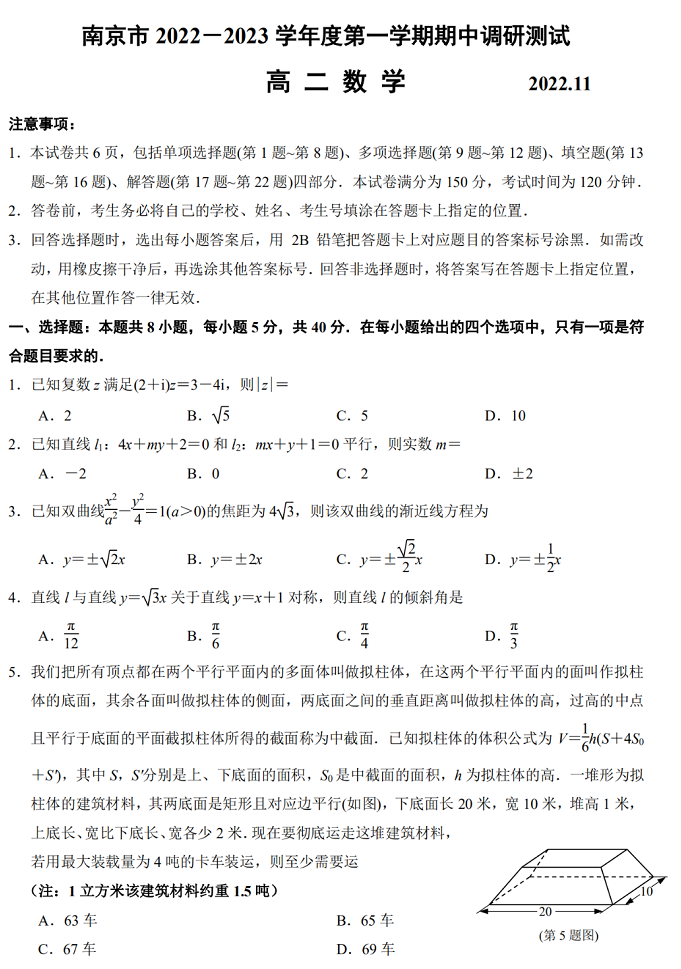 南京市2022-2023年高二上学期期中考试数学试卷含答案南京市高二学生进行了2022-2023年第一学期中考试,小编整理到了这次考试的数学试卷及答案,在这篇文章里面分享给同学们。咱们高二学生或者是江苏其他城市的高二学生们也可以看一看、做一做,对自己的知识进行一个复习,对自己做一个检测。 南京市2022-2023年高二上学期期中考试数学试卷
南京市2022-2023年高二上学期期中考试数学试卷含答案南京市高二学生进行了2022-2023年第一学期中考试,小编整理到了这次考试的数学试卷及答案,在这篇文章里面分享给同学们。咱们高二学生或者是江苏其他城市的高二学生们也可以看一看、做一做,对自己的知识进行一个复习,对自己做一个检测。 南京市2022-2023年高二上学期期中考试数学试卷 -
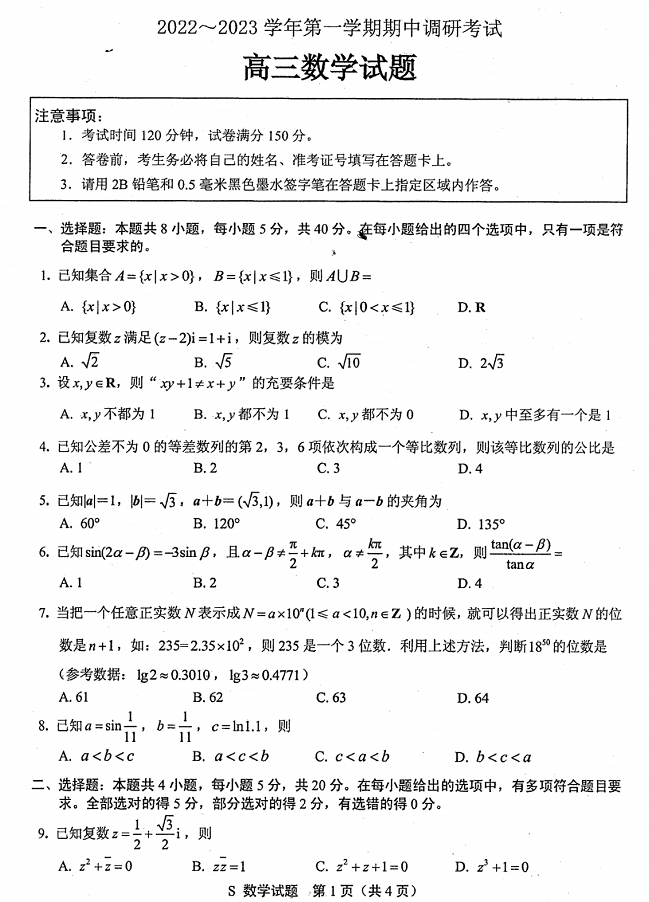 江苏省连云港市2022-2023年上学期高三期中考试数学试卷及答案近日江苏的很多城市的高三学校都进行了2022-2023年上学期期中考试,主要是对高三学生从开学到现在这么长时间学习情况的一个调查。下面是江苏省连云港市2022-2023年上学期高三期中考试数学试卷及答案,伊顿教育小编整理出来跟大家进行分享。 江苏省连云港市2022-2023年上学期高三
江苏省连云港市2022-2023年上学期高三期中考试数学试卷及答案近日江苏的很多城市的高三学校都进行了2022-2023年上学期期中考试,主要是对高三学生从开学到现在这么长时间学习情况的一个调查。下面是江苏省连云港市2022-2023年上学期高三期中考试数学试卷及答案,伊顿教育小编整理出来跟大家进行分享。 江苏省连云港市2022-2023年上学期高三 -
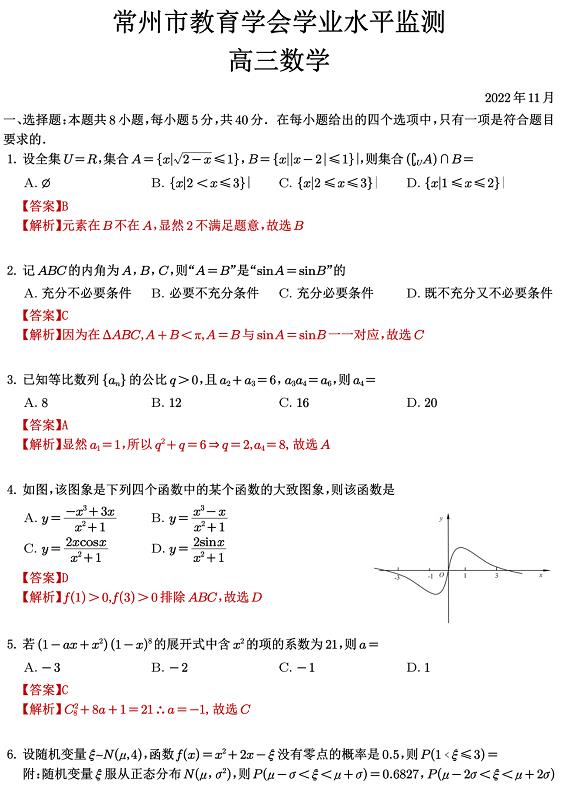 常州市2023届高三期中联考数学试卷及答案解析近期江苏省一些城市的高三学生们已经开始了期中考试,下面是小编整理的常州市2023届高三期中联考数学试卷及答案解析,虽然考试已经考完了,但是你们还是可以看再看一下的。另外咱们江苏其他城市的高三学生们也可以做一下常州市今年高三期中联考的数学试卷,看看自己得多少分。 常州市2023届高三期中
常州市2023届高三期中联考数学试卷及答案解析近期江苏省一些城市的高三学生们已经开始了期中考试,下面是小编整理的常州市2023届高三期中联考数学试卷及答案解析,虽然考试已经考完了,但是你们还是可以看再看一下的。另外咱们江苏其他城市的高三学生们也可以做一下常州市今年高三期中联考的数学试卷,看看自己得多少分。 常州市2023届高三期中 -
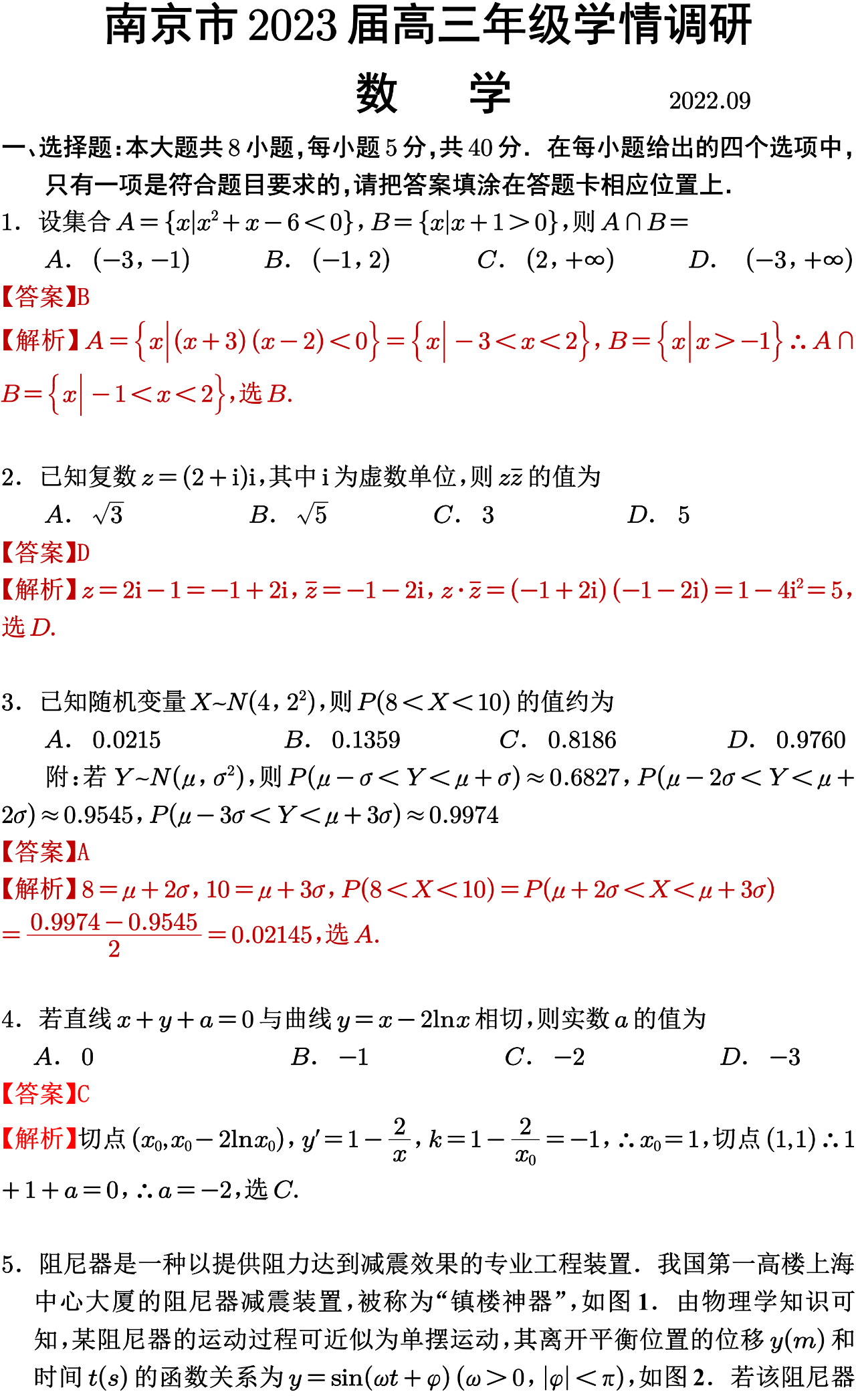 2023南京高三零模 南京市2023届高三零模数学试卷及答案解析随着高三开学,南京市迎来了高三零模考试,正式进入高三的模考,这次零模考试不知道广大高三学子们考的怎么样呢?以下是小编为大家整理的2023届南京市高三零模考试的数学试卷及答案解析,欢迎大家来查漏补缺。 2023南京高三零模 南京市2023届高三零模数学试卷及答案解析
2023南京高三零模 南京市2023届高三零模数学试卷及答案解析随着高三开学,南京市迎来了高三零模考试,正式进入高三的模考,这次零模考试不知道广大高三学子们考的怎么样呢?以下是小编为大家整理的2023届南京市高三零模考试的数学试卷及答案解析,欢迎大家来查漏补缺。 2023南京高三零模 南京市2023届高三零模数学试卷及答案解析






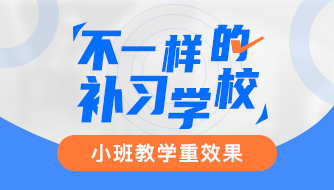


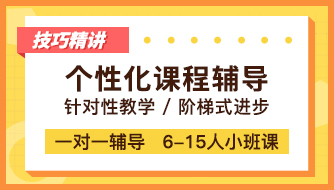
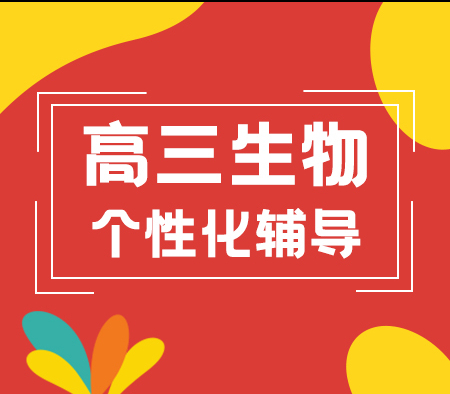
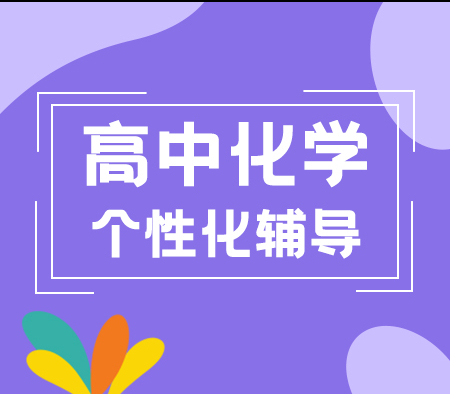
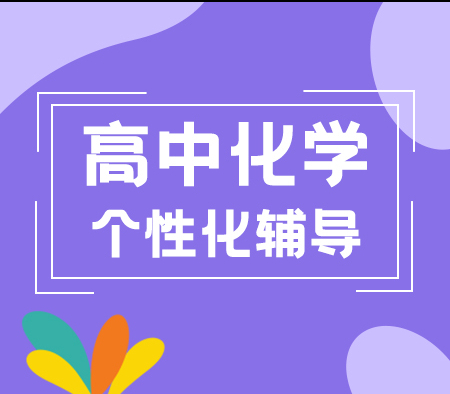
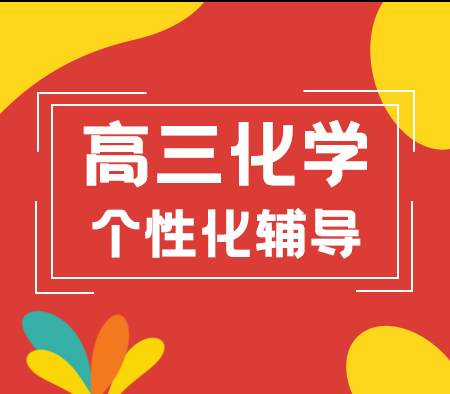




 All right reserved
All right reserved
